From Murrayfield to Malaysia - Scottish rugby's talent search
- Published
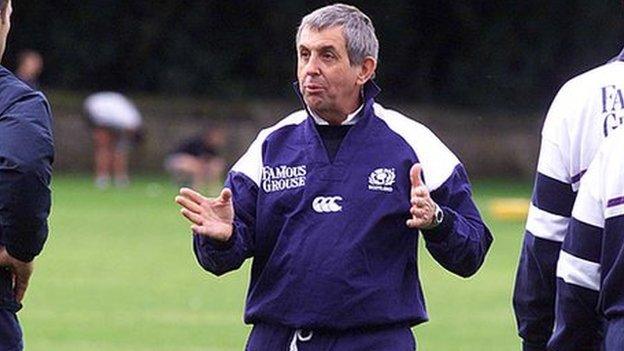
Leeds-born Sir Ian McGeechan played for Scotland in the 1970s and enjoyed two successful stints as head coach
Ask yourself what links Dubai, Luxembourg, the Southeast Asian island of Java and a quintessentially English town called Beverley to Murrayfield?
You might be occupied pondering long enough to miss Scotland's next Grand Slam.
The answer is a softly spoken Nottingham native with a keen eye for talent, a shrewd affinity for the nuances in the development of a teenage rugby player, and the administrative nous to overcome a remarkable workload.
From his base in the heart of East Yorkshire, Rob Brierley plots the rise of Scottish rugby's next brood of talented tyros.
The 46-year-old heads up the Scottish Rugby Union's Exiles programme, harnessing expertise honed over years spent upskilling coaches across Britain to identify, cultivate and prepare for professional rugby youngsters with Scots heritage who have grown up south of Hadrian's Wall and beyond.
From Sir Ian McGeechan to Budge Pountney, and Damian Cronin to Jim Hamilton, historically, Scotland have relied with some success upon the Anglo-association to bolster their frugal player pool.
Operating on a modest budget, with Brierley in his capacity as performance manager now the only salaried employee, the scheme has yielded caps for the likes of Duncan Taylor, Ryan Wilson and Henry Pyrgos, scouted Greig Tonks and Tim Swinson, and provided dozens more with opportunities to play elite rugby that would otherwise have passed them by.
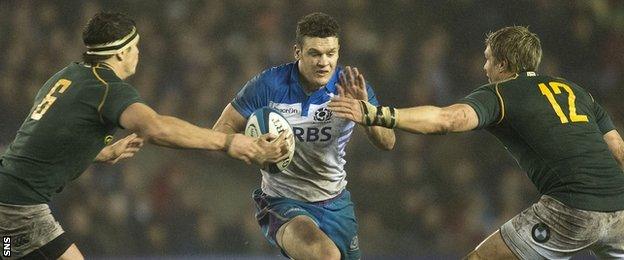
Duncan Taylor in action for Scotland against South Africa
"We aim to identify and develop Scottish-qualified players across the world, but mostly in England, although we've had players from France, Dubai, and Gibraltar," Brierley told BBC Scotland.
"We're fairly small in terms of resources, but we are aware of about 2,500 players, and we're actively working with about 700. Of that, about 50 get into Scotland squads at age-group level.
"We have a basic structure in England with nearly 100 volunteers assisting us in running 12 regions around the country as far and wide as Taunton, Cambridge, Manchester and Newcastle.
"From there, players are given training, benchmarked and potentially moved on to another level within the programme. Then there are players we are aware of within the English Premiership academy structure."
It all sounds terribly efficient - and perhaps that should come as no surprise in the cut-throat business of top-level sport. You make the grade or you don't. You're good enough or you're not. You're in or you're out.
But Brierley's approach is different. Not radically so, but enough that his players and their parents are acutely aware their peculiar needs are being catered to.
The Exiles are his baby. He's been there since the scheme's inception under its current guise in 2006 as an Englishman who has always harboured "a strange affinity for Scottish rugby".
"When I first started eight years ago, there was nothing in place at all," he said. "No structures. Like any sort of programme, we've started small and slowly grown so that people are becoming more aware of it and it's become more credible to the rugby population here."
Racking up the miles
A week in the life of Brierley is a hectic experience. On Monday and Tuesday, he travels far and wide to meetings and regional training sessions. Wednesday entails a visit to a school or academy, and the perusal of a game. Thursday and Friday are dedicated to fielding emails and phone calls from around the world, while the weekend is dominated by a camp, or a trip to run the rule over a specific player.
His mechanic must be worth a fortune.
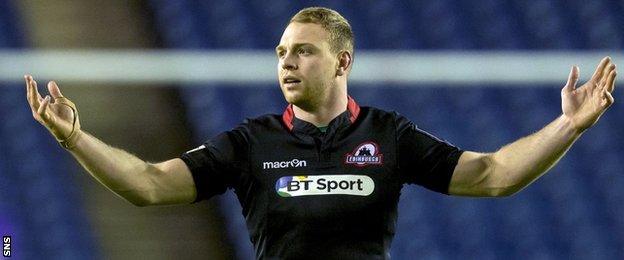
Brierley and his team of volunteers were responsible for scouting Greig Tonks
"It's a busy job, but a great job," he added. "I've been doing this sort of thing for a long time. I know the ways to work so that you're not overly stretched in terms of hours spent.
"I drove to Taunton and back in a day recently - 10 hours' drive, with a series of meetings on the way, and I drove back to be in the office next day. It's easy to do 15-16 hour days in this job.
"I can do all sorts of things, from talking to agents and Premiership clubs at the high level, or visiting schools and clubs at the other end. We're the direct link with Scottish rugby. If you're a Scottish-interested person in Taunton or Exeter or Norwich, you come to us. A lot of it is about communication with people."
A "player-centric" approach to development
Brierley tells you with pride that none of Scotland's Six Nations rivals boast a developmental set-up with the same active focus: no-one looks out for the pastoral interests of young players quite like the Scottish Exiles.
You counter that perhaps the need of England, Ireland and Wales to scour the globe for recruits is less. You question whether Scotland produces enough talent within its own borders, under its own steam. He's unperturbed. He's heard it before.
"You could say that," he said. "But you could also say we offer something slightly different. A lot of the players we have selected are forwards; there are a lot of bigger guys who are coming from down here. And if you think traditionally, back to the 1990 Grand Slam side, Paul Burnell, Damian Cronin, Chris Gray - three or four exiles were in the pack.
"I just think it adds more numbers for Scotland - you get more competition, the standard goes up.
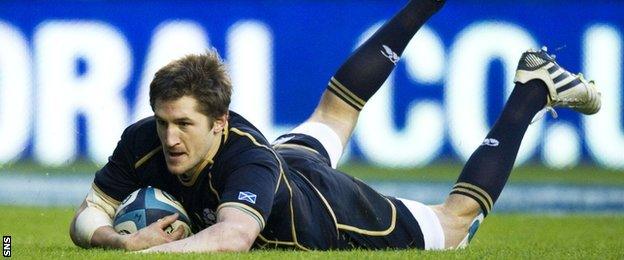
Henry Pyrgos was another of Brierley's projects
"But (other nations) are faced with the same problems we are in Scotland - trying to engage kids, keep them playing, motivate them, develop their skills. The biggest difference is numbers. England have got the same issues we have, it's just a larger place. Inevitably, they're going to throw up more players of quality.
"I don't think there's another organisation that operates the same way we do in terms of putting the player at the centre of the process, giving them support or looking for opportunities to help them develop through contacts with clubs or schools.
"We treat them as an individual, look after their needs, give them feedback, we're supportive. Some guys we've been working with for six or seven years between 16-17 and 21-22.
"Many other talent programmes focus on the here and now. They look at players immediately around them, develop them to a certain point where they decide: are they ready to play pro rugby at this point? If they are, great, they get contracted. If not, they're out the door.
"A guy at Under-16 may have deficiencies in his game, but we try to give him additional support so he can progress and realise his potential - guys like Alec Coombes, the Scotland Under-20 winger, have come through like that.
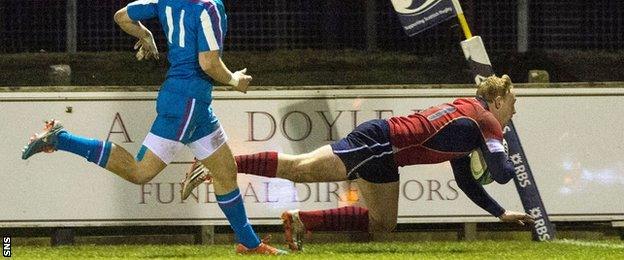
Alec Coombes scores for Scotland Under-20 against Italy
"Even if our boys aren't quite ready for pro-rugby, there may be an exit route into Scotland to play at a lower level. Some boys come back to us as coaches within the programme. It takes a lot of work, but I think that way of approaching it makes for a more committed group of people."
Success stories
It's a well-honed spiel, one Brierley has doubtless reeled off time and again, with the same smooth perpetuity as the weary mileage clock on his dashboard.
But both in terms of the Exiles' sizeable representation in Scotland's age-grade sides, and the testimonies of the players themselves, it stands up to scrutiny.
For boys like 17-year-old Liam Cook, once a member of London Wasps' Academy, whose disappointment at narrowly missing out on Scotland Under-16 selection last year might otherwise have left him jaded, the Exiles has offered a constant source of motivation and development.
His father's globetrotting career in the oil industry took him to Berkshire via Jakarta and Cairo, but his persistence with the scheme, and its persistence with him, meant his meandering route through the sport ended with a berth in the Scottish Academy system and a place at a top rugby school.
"Anyone of Scottish descent, at any level of ability, can attend the initial camps, get feedback, see the areas they need to develop in," Liam said.
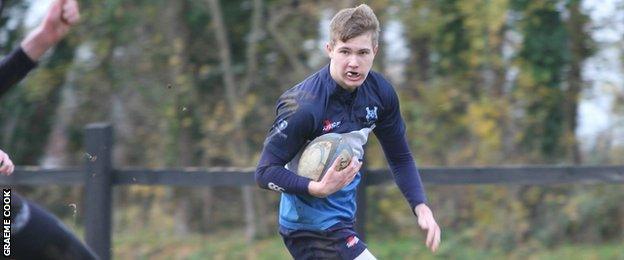
Winger Liam Cook, now at school in Scotland and enrolled in the Borders Academy, playing for the Scottish Exiles
"Despite under-performing at last year's trial, it's great to have that feeling of appreciation, that much-needed specialist support around you, knowing everyone cares about you and your long-term development."
Father Graeme, a well-travelled Banchory boy, enthuses: "I saw what Rob had done with a couple of other lads moving to Scottish schools - this stuff's life-changing. I think the Exiles punches miles above its weight."
For those like Ben Vellacott, playing his rugby nearly 500 miles from Murrayfield in Devon, the programme provided a vital link to the national set-up, Under-20 representation, and ultimately, a professional contract at Gloucester.
"The Exiles definitely put me on the map - without it I didn't get as much recognition as I wanted," the scrum-half said.
"Rob took time out to come down to visit me every three months. Within those three months when he hadn't seen me, he'd give me a call, ask how I was and keep me up-to-date with things.
"He told me what the Scotland coaches wanted from me, what I should look to do in next camp - it's brilliant how it helps individuals."
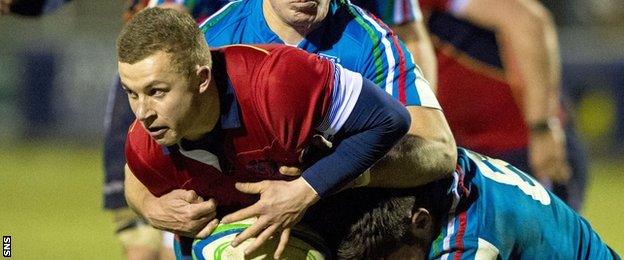
Scrum-half Ben Vellacott is tackled playing for Scotland Under-20 in February
On the horizon
It is the next wave of youngsters, the batch of Under-18s currently breaking through under Brierley's guidance that most excites him. Many more, a little longer in the tooth, are on the cusp of Test rugby.
Alex Allan won his first cap in June. Hamish Watson made his international bow in Scotland's Six Nations loss to Italy. Ali Price and Will Bordill are becoming regular names in the Glasgow Warriors line-up.
But there are scores of others still to be discovered by Brierley and his volunteers - you never know quite what, or who, will turn up.
"We're only scratching the surface in terms of what the potential could be - I think we could be looking at 5,000-6,000 players if the programme continues to grow as it has," he said.
Brierley signs off with one of his favourite tales: not long into his new role, laying out cones and balls and tackle-bags for a session somewhere on the outskirts of Sheffield, he was confronted by two enormous Hispanic teens.
Muscle-bound and olive-skinned, they dwarfed their domestic counterparts. They spoke little English, but had flown from their home in Buenos Aires specially to attend training - they considered themselves Scots. Their names?
"Diego and Juan Campbell!"
- Published7 March 2015
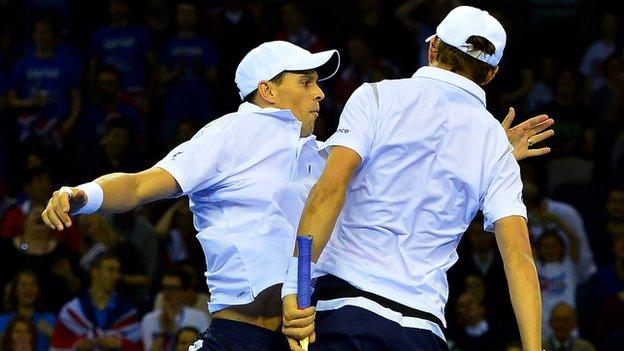
- Published7 March 2015
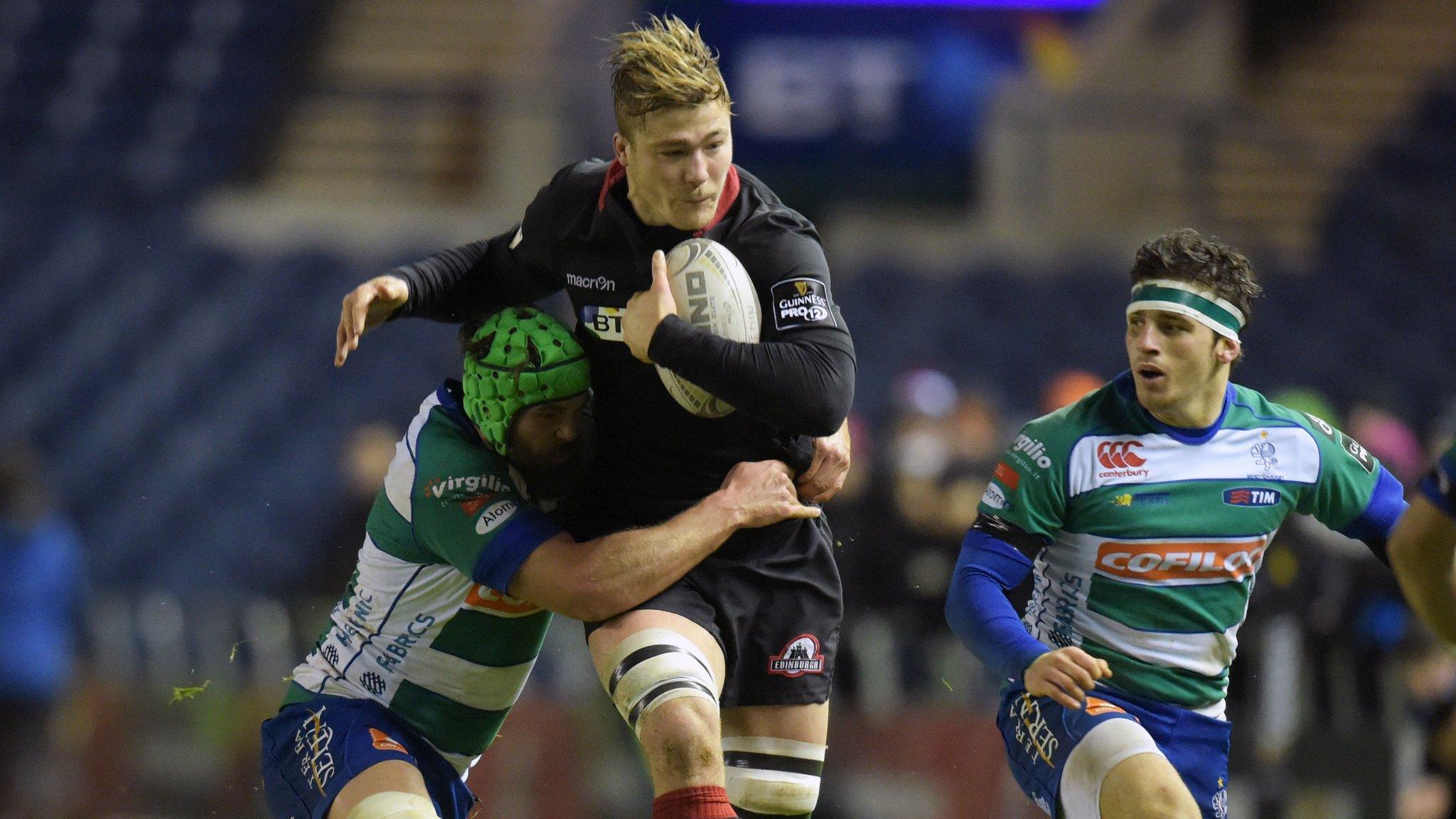
- Published6 March 2015
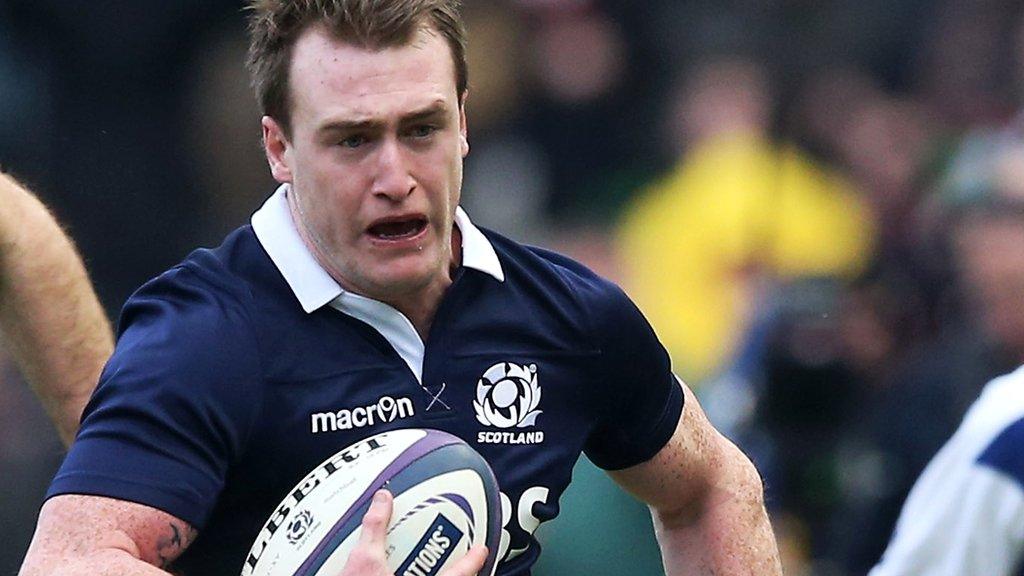
- Published14 September 2016
